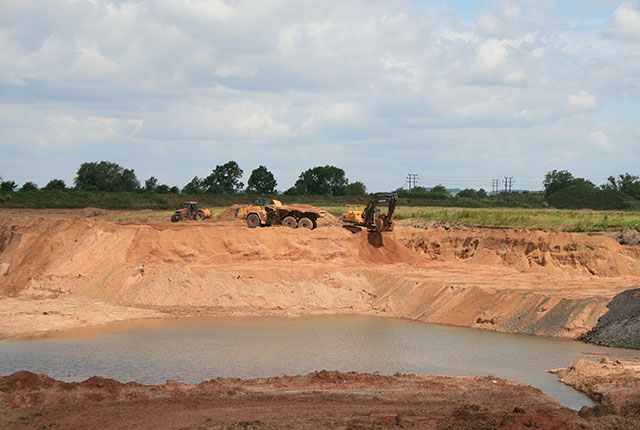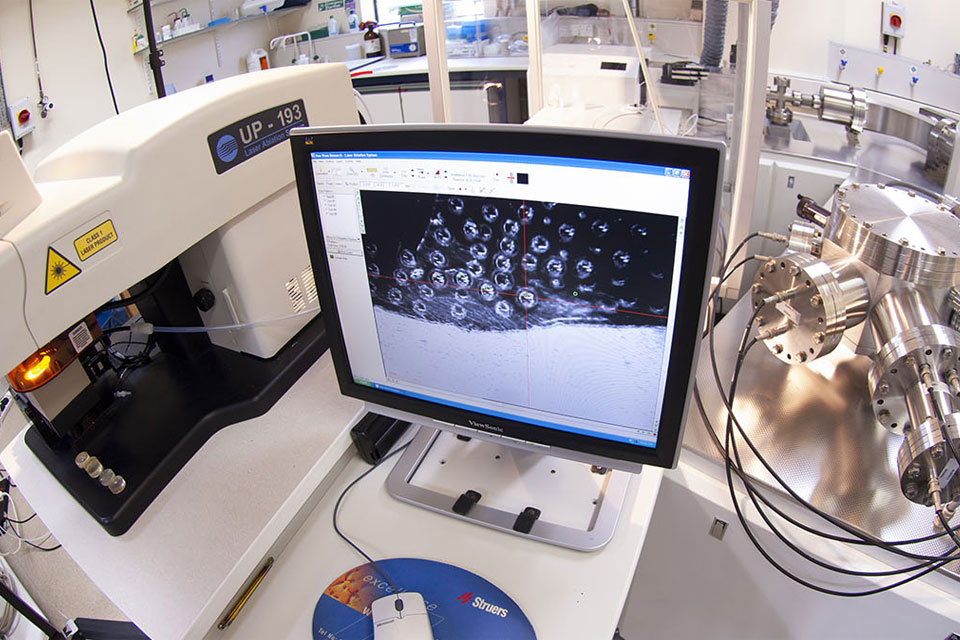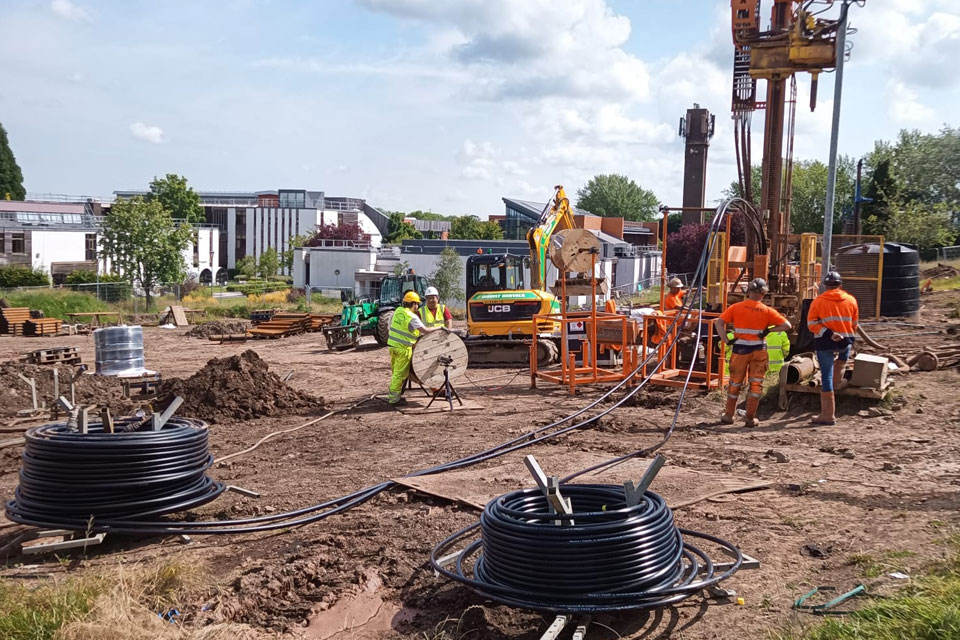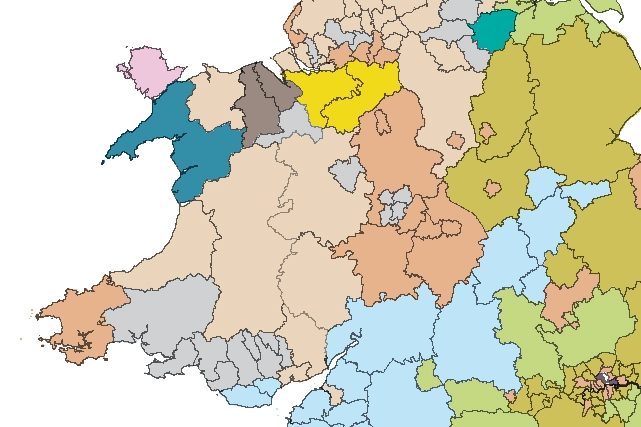Joint project aims to support sustainable development in Kenya
BGS is part of a joint UK-Kenyan international project that aims to blend data and information with local stakeholder input to explore the sustainable supply of sand and aggregates in Kenya.
12/10/2020 By BGS Press
The project, called Earth Observation for Sustainable Aggregate Supply (EO4SAS), is one of ten recently announced projects being grant-funded through the UK Space Agency’s International Partnership Programme (IPP), part of the Department for Business, Energy & Industrial Strategy’s (BEIS) Global Challenges Research Fund (GCRF).
Sand used as aggregate forms an essential but finite resource. Growing demand for construction – buildings and infrastructure, creating land through reclamation, and coastal protection from climate change – has resulted in supply pressures on traditional sources. Unmanaged extraction is an emerging and locally significant problem around the world.
The issue has been highlighted by the United Nations and has the potential to cause wide-ranging social, economic and environmental impacts. These impacts can include pollution, land erosion, changing water flows, reduction of biodiversity, damage to infrastructure, degradation of habits and impacts on vulnerable communities.
Pixalytics Ltd, a UK-based earth-observation company, is leading the project and will be working with the Government of Kenya alongside Kenyan partners Nairobi Design Institute and NIRAS Africa, and UK partners Satellite Applications Catapult, Chatham House and the University of Plymouth to deliver the work. The project is being supported by the minerals team from BGS.
The team will be working with local stakeholders alongside satellite data, machine-learning technology and in-country knowledge to bring together a better understanding of the current extraction sites, scale, transportation routes and environmental impacts for sand, helping the Government of Kenya identify better strategies for the sustainable management of this resource.
This is a short-term discovery project, running until March 2021, to look at how such a system could be implemented. It is hoped the proposed solution will go on to receive further funding and so improve the monitoring and regulation of aggregate mining, supporting sustainability in the aggregate supply chain and progress towards the United Nations’ Sustainable Development Goals.
Sand is a vital raw material for construction, essential for houses and infrastructure in rapidly developing counties like Kenya. However, high demand can lead to shortages, lack of effective environmental controls and even illegal mining. Through this project we are excited to be involved in developing more effective resource management systems using innovative technologies to mitigate some of the harmful effects of sand extraction.
Tom Bide, BGS Minerals Geologist.
With an increasing global demand for sand, we are excited to be working with Government of Kenya, local stakeholders and communities to see how we can all work together to develop a more sustainable system for the management of this vital resource.
Dr Samantha Lavender, Managing Director at Pixalytics.
The compelling results of previous IPP projects cement the case for investment in space for sustainable development. IPP is not only demonstrating the value of satellite solutions and improving the lives of people on the ground in developing countries, but also facilitating effective alliances between the United Kingdom and international organisations. It’s a ‘win-win’ and an exciting moment in the programme.
Liz Cox, IPP Head of International Relations at the UK Space Agency.
For further information please contact our press office:
Call: +44 (0)7790 607 010.
(Please do not text this number. We accept calls or email only.)
Email: bgspress@bgs.ac.uk
About the UK Space Agency’s International Partnership Programme:
The UK Space Agency’s International Partnership Programme (IPP) is a five-year, £30 million per year initiative designed to utilise the UK space sector’s research and innovation strengths to deliver sustainable economic, societal and/or environmental benefits to developing countries. Projects within IPP span a range of themes including: building climate/disaster resilience; improving agriculture; reducing deforestation; preventing and reducing maritime pollution and illegal fishing; optimising renewable energy production; and improving access to appropriate and affordable financial services.
IPP is funded from the Department for Business, Energy and Industrial Strategy’s (BEIS) Global Challenges Research Fund (GCRF). This £1.5 billion Official Development Assistance (ODA) fund supports cutting-edge research and innovation on global issues affecting developing countries. ODA-funded activity focuses on outcomes that promote long-term sustainable development and growth in countries on the OECD Development Assistance Committee (DAC) list. IPP is ODA compliant, being delivered in alignment with UK Aid Strategy and the United Nations’ (UN) Sustainable Development Goals (SDGs).
About the British Geological Survey
The British Geological Survey (BGS) is a world leading applied geoscience research centre that is part of UK Research and Innovation (UKRI) and affiliated to the Natural Environment Research Council (NERC). BGS core science provides objective and authoritative geoscientific data, information and knowledge to inform UK Government on the opportunities and challenges of the subsurface. It undertakes national and public good research to understand earth and environmental processes in the UK and globally. The BGS annual budget of approximately £60 million pa is funded directly by UKRI, as well as research grants, government commissions and private sector contracts. Its 650 staff work across the UK with two main sites, the head office in Nottingham and Lyell Centre, a joint collaboration with Heriot Watt University in Edinburgh. BGS works with more than 150 private sector organisations, has close links to 40 universities and sponsors about 100 PhD students each year. Please see www.bgs.ac.uk.
Related news

Call for new members and Chair to join the NERC facilities steering committees
25/02/2026
New members are needed to join the committees over the next four years.

Your views wanted – developing a ‘Geothermal energy subsurface data portfolio’
24/02/2026
BGS is aiming to support the growth of the sector by providing the best-available, location-specific geothermal and ground source heat information as an accessible product or service.

Map of BGS BritPits showing the distribution of worked mineral commodities across the country
18/02/2026
BGS’s data scientists have generated a summary map of the most commonly extracted mineral commodities by local authority area, demonstrating the diverse nature of British mineral resources.

Funding awarded to map the stocks and flows of technology metals in everyday electronic devices
12/02/2026
A new BGS project has been awarded Circular Electricals funding from Material Focus to investigate the use of technology metals in everyday electrical items.

New UK/Chile partnership prioritises sustainable practices around critical raw materials
09/02/2026
BGS and Chile’s Servicio Nacional de Geología y Minería have signed a bilateral scientific partnership to support research into critical raw materials and sustainable practices.

Extensive freshened water confirmed beneath the ocean floor off the coast of New England for the first time
09/02/2026
BGS is part of the international team that has discovered the first detailed evidence of long-suspected, hidden, freshwater aquifers.

Funding secured to help mitigate ground risk in UK construction sector
05/02/2026
The BGS Common Ground project has been awarded new funding to help unlock the value of ground investigation data.

Can sandstones under the North Sea unlock the UK’s carbon storage potential?
02/02/2026
For the UK to reach its ambitious target of storing 170 million tonnes of carbon dioxide per year by 2050, it will need to look beyond the current well-studied geographical areas.

Quaternary UK offshore data digitised for the first time
21/01/2026
The offshore wind industry will be boosted by the digitisation of a dataset showing the Quaternary geology at the seabed and the UK’s shallow subsurface.

Suite of ten new soil reference materials released
02/01/2026
BGS has a longstanding track record of producing high-quality reference materials and has released ten new soil reference materials.

Perth and Kinross tops the UK’s earthquake activity charts for 2025
29/12/2025
Seismologists at BGS have published data on the number of seismic events over the past 12 months with over 300 earthquakes recorded.

BGS awarded funding to support Malaysia’s climate resilience plan
17/12/2025
The project, funded by the Foreign, Commonwealth & Development Office, will focus on minimising economic and social impacts from rainfall-induced landslides.



